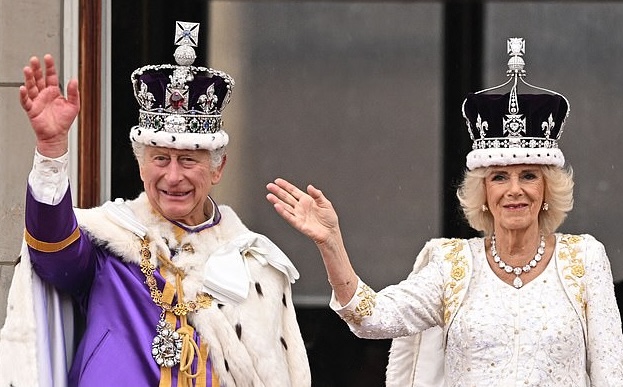
By Brian Feeney (for the Irish News)
Britain’s King Charles was on a state visit to Kenya this week expressing “greatest sorrow” and “deepest regret for the wrongdoings of the past”, but not apologising. He said: “There were abhorrent and unjustifiable acts of violence committed against Kenyans as they waged a painful struggle for independence and sovereignty – and for that, there can be no excuse.”
The Kenya Human Rights Commission (KHRC) weren’t happy. “We call upon the king, on behalf of the British government, to issue an unconditional and unequivocal public apology (as opposed to the very cautious, self-preserving and protective statements of regrets) for the brutal and inhuman treatment inflicted on Kenyan citizens,” they said.
According to the KHRC, 90,000 Kenyans were tortured, maimed or executed during what the British called the Kenya Emergency in the 1950s.
Though King Charles wouldn’t apologise, the British government was forced to apologise in 2013 when it had to settle a case brought by five Kenyan survivors in a class action. The then Foreign Secretary William Hague for the first time admitted that the British had used torture and ill treatment and expressed “sincere regret for these abuses”. The British then coughed up £20 million to 5,228 Kenyans who had suffered.
The evidence was produced largely by historical detective work by Professor Caroline Elkins of Harvard who discovered, among other attempts to cover up the systematic atrocities, that the British had got rid of three and a half tons of incriminating documents as they prepared to get out of Kenya. They’d also hidden 300 boxes at Hanslope Park near Milton Keynes until compelled by legal action to disclose them.
Elkins expanded her research and demonstrated in her brilliant book, Legacy of Violence: A History of the British Empire, that far from Kenya being unique, the British used the same procedures and techniques throughout the empire, including here.
Overall Elkins summed up the system as ‘legalised lawlessness’. The latest example here is the cynically named Legacy and Reconciliation Act.
Incredibly, what this act does in essence is to bar anyone from suing the British government for a tort committed by any of its agents here during the Troubles. That contravenes a fundamental right in law which has existed for centuries. Like inquests which have operated since the eleventh century, also abolished for Troubles cases.
You can see Elkins’s thesis operating every week in courts here as the MoD and PSNI deny, delay and cover up as an obvious ploy to run the clock down until next May when the Legacy Act’s legalised lawlessness kicks in.
You can see why the MoD does it because they always have protected military personnel: they ‘lose’ documents, weapons, can’t find former soldiers etc. The PSNI’s remarkable ‘discovery’ of voluminous files just as a case or inquest is about to start is different and more worrying. It’s not just court cases where they do this but for Police Ombudsman (PONI) inquiries too.
It’s too obvious, too regular, too suspicious. Why do they do it? Why do they appeal so many cases at great cost to the public purse when a court decides they must disclose something, or investigate something or pay compensation?
Finally, why is there still denial of widespread systematic collusion when, after three inquiries, Stevens found in 2003 that there was? It seems that the same obstruction that Stevens encountered from 1990 on still operates. Why?
It looks likely that we’ll need to wait longer than the Kenyans before there’s a comprehensive British apology for what they did here. Maybe after some files closed until 2064 are open?
![[Irish Republican News]](https://republican-news.org/graphics/title_gifs/rn.gif)
![[Irish Republican News]](https://republican-news.org/graphics/title_gifs/harp.gif)

